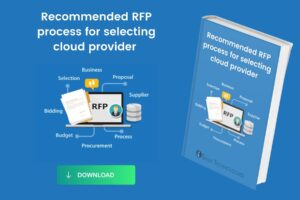With the rise of cloud computing and the increasing demand for efficient data operations (DataOps), data professionals are now transitioning to become DataOps professionals. This shift requires acquiring the necessary skills and knowledge to effectively manage data workflows in cloud-based environments.
In this article, we will explore the journey from being a data professional to becoming a proficient DataOps professional through cloud DataOps training.
Introduction to DataOps
DataOps is a methodology that combines agile principles, DevOps practices, and data management techniques to streamline and automate data operations. It focuses on collaboration, communication, and integration between data engineers, data scientists, and other stakeholders involved in the data lifecycle.
By adopting DataOps, organizations can achieve faster data delivery, improved data quality, and enhanced cross-functional collaboration.
The Role of a Data Professional
A data professional plays a crucial role in managing and analyzing data to derive valuable insights for decision-making. They are responsible for data collection, cleaning, transformation, and analysis using various tools and technologies.
Data professionals also collaborate with stakeholders to understand their requirements and develop data-driven solutions. However, with the increasing complexity and scale of data operations, traditional data management approaches may no longer be sufficient.
The Need for Cloud DataOps Training
Cloud computing has revolutionized the way organizations store, process, and analyze data. It offers scalability, flexibility, and cost-effectiveness, making it an ideal platform for implementing DataOps practices.
However, transitioning from on-premises data management to cloud-based DataOps requires a solid understanding of cloud infrastructure, data governance, security, and advanced analytics techniques. This is where cloud DataOps training comes into play.
Key Skills and Concepts in Cloud DataOps
To become a proficient DataOps professional in the cloud, several key skills and concepts need to be mastered. These include:
- Cloud Platforms: Familiarity with popular cloud platforms like Amazon Web Services (AWS), Microsoft Azure, or Google Cloud Platform (GCP) is essential for understanding cloud infrastructure and services.
- Data Governance: Knowledge of data governance principles and practices ensures data security, privacy, and compliance in cloud environments.
- Automation and Orchestration: Proficiency in automation and orchestration tools like Apache Airflow, Kubernetes, or Jenkins helps in automating data pipelines and workflows.
- Data Integration: Understanding data integration techniques and tools enables seamless data movement and synchronization across various cloud-based systems.
- Monitoring and Alerting: Familiarity with monitoring and alerting tools helps in identifying and resolving issues related to data quality, performance, and availability.
Implementing DataOps Strategies in the Cloud
Once equipped with the necessary skills, DataOps professionals can implement effective DataOps strategies in the cloud. These strategies involve:
- Collaboration and Communication: Foster collaboration and effective communication between data engineers, data scientists, and business stakeholders to align objectives and ensure smooth data operations.
- Agile Methodologies: Embrace agile methodologies like Scrum or Kanban to deliver iterative and incremental data solutions, ensuring faster time-to-value.
- Continuous Integration and Deployment: Implement continuous integration and deployment practices to automate the deployment of data pipelines and ensure consistency and reliability.
- Version Control: Utilize version control systems like Git to track changes in data pipelines, enable easy rollbacks, and facilitate collaboration among team members.
- Quality Assurance: Establish robust data quality assurance processes to validate and verify data accuracy, completeness, and consistency.
Best Practices for Cloud DataOps
To achieve optimal outcomes in cloud DataOps, following best practices is crucial:
- Infrastructure as Code: Embrace infrastructure as code (IaC) principles to define and provision cloud infrastructure resources programmatically, ensuring consistency and reproducibility.
- Continuous Monitoring: Implement continuous monitoring and logging mechanisms to gain insights into data operations, detect anomalies, and facilitate proactive issue resolution.
- Security and Compliance: Adhere to cloud security best practices and ensure compliance with data protection regulations to maintain the confidentiality and integrity of sensitive data.
- Performance Optimization: Optimize data processing and query performance through techniques like partitioning, indexing, caching, and query optimization.
- Documentation and Knowledge Sharing: Maintain comprehensive documentation and promote knowledge sharing among team members to facilitate collaboration and reduce knowledge silos.
Challenges and Solutions in Cloud DataOps
While implementing DataOps in the cloud, several challenges may arise. These include:
- Data Security and Privacy: Ensure appropriate security measures, such as encryption and access controls, to protect sensitive data stored and processed in the cloud.
- Data Integration Complexity: Address the complexity of integrating data from various sources, both on-premises and cloud-based, by leveraging data integration platforms and tools.
- Legacy System Integration: Migrate and integrate data from legacy systems to the cloud using efficient and reliable migration strategies, ensuring minimal disruption to business operations.
- Governance and Compliance: Establish robust governance frameworks and comply with relevant data protection regulations, such as GDPR or CCPA, to maintain data integrity and meet legal requirements.
- Skills Gap: Bridge the skills gap by providing continuous training and upskilling opportunities to data professionals to keep pace with evolving cloud DataOps technologies.
Tools and Technologies for Cloud DataOps
Various tools and technologies can empower DataOps professionals in the cloud environment, such as:
- Apache Airflow: An open-source platform for programmatically authoring, scheduling, and monitoring data pipelines.
- AWS Glue: A fully managed extract, transform, and load (ETL) service that makes it easy to prepare and load data for analytics.
- Microsoft Azure Data Factory: A cloud-based data integration service that orchestrates and automates data movement and transformation.
- Google Cloud Dataflow: A fully managed service for developing and executing data processing pipelines.
- Databricks: A unified analytics platform that provides a collaborative environment for data engineering and data science workloads.
Career Opportunities for DataOps Professionals
The increasing adoption of cloud technologies and the growing demand for efficient data operations present abundant career opportunities for DataOps professionals. Some roles in this field include:
- DataOps Engineer: Responsible for designing, developing, and maintaining data pipelines and workflows in the cloud.
- Cloud Data Architect: Designs cloud-based data architectures, ensures data security and governance, and provides guidance for implementing DataOps practices.
- Data Operations Manager: Oversees and manages data operations teams, sets data strategy, and ensures alignment with business objectives.
- Data Governance Analyst: Focuses on data governance, compliance, and data quality assurance in cloud DataOps environments.
Future Trends in Cloud DataOps
The future of cloud DataOps holds several exciting trends, including:
- Artificial Intelligence and Machine Learning: Leveraging AI and ML technologies for automating and optimizing data operations, anomaly detection, and predictive analytics.
- Serverless Computing: Utilizing serverless computing architectures to further simplify and automate data processing, reducing operational overhead and costs.
- DataOps as a Service: The emergence of DataOps as a Service platforms, enabling organizations to outsource their data operations to specialized providers.
- DataOps for Edge Computing: Extending DataOps practices to edge computing environments, allowing efficient data processing and analytics closer to the data source.
Conclusion
As the data landscape continues to evolve, data professionals must adapt and transform into DataOps professionals to meet the demands of modern data management. Cloud DataOps training plays a vital role in equipping individuals with the skills and knowledge needed to excel in this field. By embracing cloud technologies, implementing DataOps strategies, and staying updated with emerging trends, data professionals can unlock new opportunities and drive innovation in the world of data operations.





